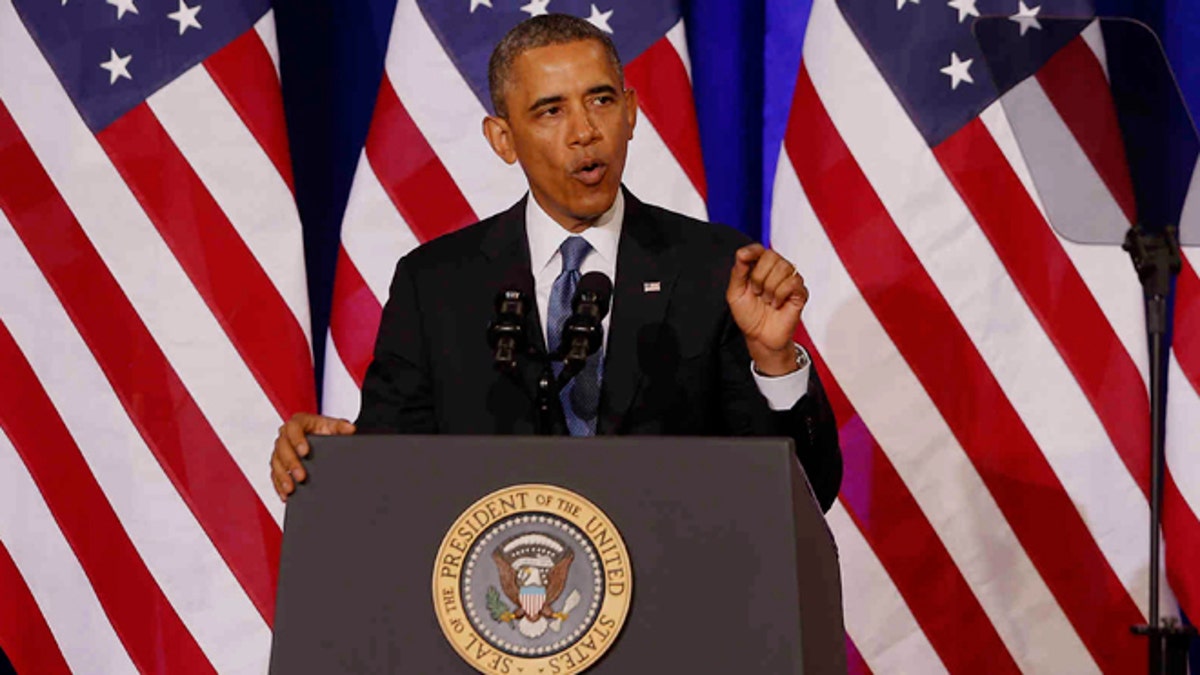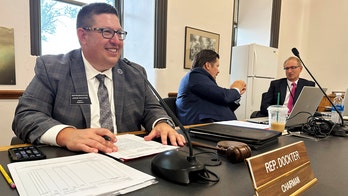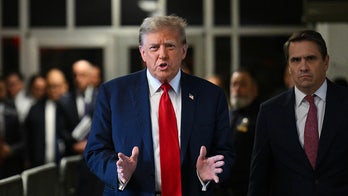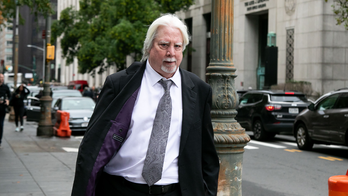
Jan. 17, 2014: President Barack Obama Talks about National Security Agency surveillance at the Justice Department in Washington.
President Barack Obama told German television in an interview aired Saturday that he would not allow America's massive communications surveillance capability to damage relations with Germany and other close U.S. allies.
Obama made the pledge in a rare interview with Germany's ZDF television in an apparent step to repair the damage to America's relations with Germany and other countries following reports that the U.S. National Security Agency had monitored communications of European citizens -- even listening in on Chancellor Angela Merkel's cellphone.
Merkel accused the U.S. of a grave breach of trust after reports about her cellphone emerged in October, and her government has been pressing for a "no spying" agreement with Washington since then. Her center-right party's foreign policy spokesman, Philipp Missfelder, told reporters Thursday that revelations about U.S. spying in Germany had plunged relations with Washington to their lowest level in more than a decade.
During the 16-minute interview, Obama acknowledged the anger in Germany and elsewhere ignited by spy revelations following the leak of documents obtained by former NSA analyst Edward Snowden to news media. Obama said it would take time to restore trust, although he defended U.S. surveillance as necessary to protect the U.S. and its allies, including Germany.
Obama said that before the revelations he had forged a close working relationship with Merkel and that he could not allow U.S. surveillance operations to damage that trust.
"As long as I am president of the United States, the German chancellor need not worry about that," Obama said, according to a simultaneous German translation as he spoke.
He said that in foreign policy issues even close partners do not share the same views but "that is no reason" to spy on private communications.
The interview was broadcast a day after Obama ordered new limits on the way U.S. intelligence accesses phone records from hundreds of millions of Americans and moved toward eventually stripping the massive data collection from the government's hands.
Obama also promised to curb spying on allied leaders and to extend some privacy protections to foreign citizens -- demands that have special resonance in Germany because of its bitter memories of massive domestic surveillance by the Nazis and East German Communists. German interviewer Claus Kleber told the president that initial reaction in Germany toward his speech had been "skeptical, careful, many even disappointed" including those who are "normally pro-American. "
Following the Friday speech, government spokesman Steffen Seibert said Germany would wait and see what happens before making a final judgment on Obama's intelligence reforms.
"The government continues to expect that German law be respected on German territory, including and particularly by our close partner," Seibert said.
Germany hosts more than 30,000 American troops, mostly in the south and west. The German news weekly Der Spiegel, citing Snowden documents, has reported that U.S. diplomatic and military facilities in Germany have been used for surveillance operations in the past.




